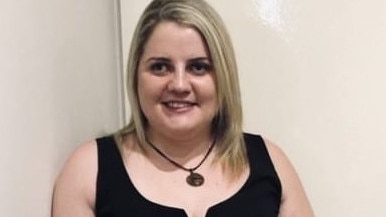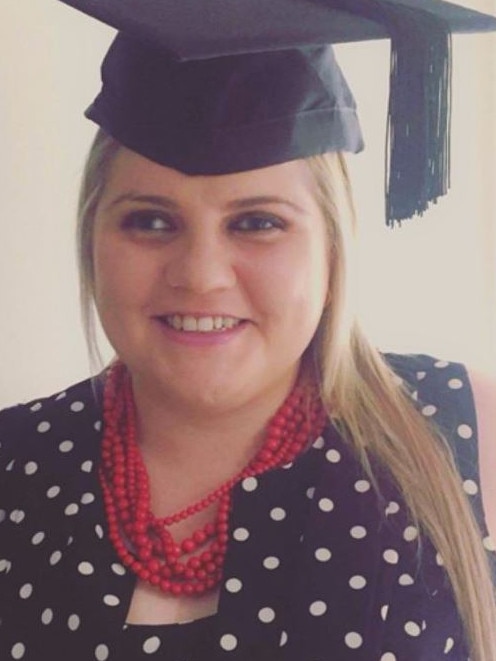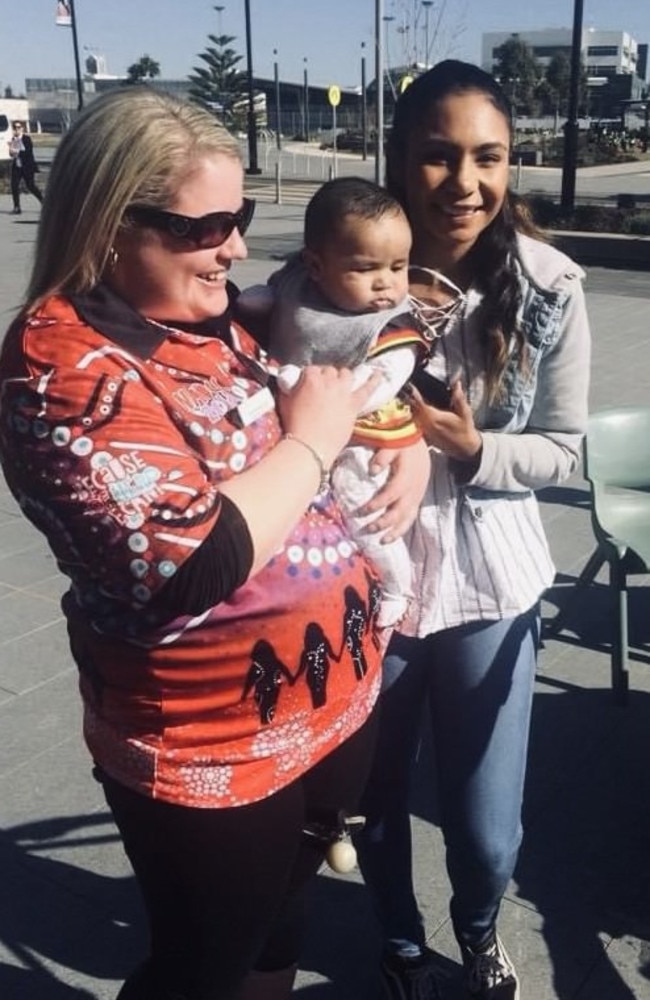Samantha Alexander: CDU law graduate on track to be nation’s first blind Aboriginal lawyer
A First Nations woman who is on the cusp of smashing a glass ceiling says she is attracted to the law’s ability to be an agent for change, and wants to help elevate the lives of Aboriginal Australians.

Tertiary
Don't miss out on the headlines from Tertiary. Followed categories will be added to My News.
A First Nations woman from western Sydney says she believes she will be the nation’s first blind Aboriginal lawyer, after her recent graduation with a Bachelor of Laws from Charles Darwin University.
Darug woman Samantha Alexander, already in possession of a Bachelor of Criminology and Criminal Justice, and a Master of Forensic Psychology, said it was “surreal” she would be the first such person to smash that particular glass ceiling, once she completes her practical legal training.
“As a proud Aboriginal woman and someone who is totally blind, graduating with my law degree is more than a personal accomplishment — it is a testament to the strength of our culture, our resilience, and our ability to rise above any adversity,” she said.

“My journey has been shaped by challenges, but it has also been guided by the wisdom of my ancestors and the enduring spirit of our culture.
“Blindness has not defined my limits; it has fuelled my adaptability, creativity, and unwavering belief in justice and equality.
“This degree is more than a piece of paper — it’s proof that with courage, hard work, and a deep connection to our roots, we can break barriers and create new opportunities for our communities.”
Ms Alexander, who began losing her sight at the age of 21, the last vestiges of her vision disappearing three years ago thanks to a diagnosis of cone-rod dystrophy, said it was her previous work in a law firm that inspired her to become a fully-fledged lawyer.

“I realised I could be a little bit more than just an Aboriginal liaison officer,” she said.
Her particular areas of interest include criminal law, human rights law, and wills and estates, all areas that have an outsized impact on Aboriginal lives in Australia.
“There’s a disparity, Aboriginal clients often don’t understand what’s happening and it’s not explained because the court system is quite quick,” Ms Alexander said.
“It’s quite distressing for an Aboriginal client who doesn’t have a clue.”
After completing an entire law degree via sound – audio notes, lectures, textbooks – Ms Alexander said she would now have the perfect riposte for Aboriginal clients who are daunted by the legal process.
“If a black fella says I can’t read or write English, I can say neither can I, but we can get around this together,” she said.
Charles Darwin University (CDU) Acting Vice-Chancellor Fiona Coulson said the work Ms Alexander put into her studies given her disability, and to graduate, was exceptional.
“CDU prides itself on being a university for everyone and Ms Alexander is an example of the efforts and systems we have in place to help each one of our students succeed no matter their background,” Ms Coulson said.
“CDU has one of the highest number of students out of any university in Australia that require an adaptable teaching method due to many factors including disabilities, English as a second language, First Nations or studying in regional and remote communities that demand flexibility in delivery.”





